GUIDELINES AND POLICIES
Editorial and Peer Review Process:
- A manuscript will be reviewed for possible publication with the understanding that it is being submitted to RV Journal of Nursing Sciences (RVJNS) alone at that point in time and has not been published anywhere, simultaneously submitted, or already accepted for publication elsewhere.
- On submission, editors will review all submitted manuscripts initially for suitability for formal review and plagiarism.
- Manuscripts with insufficient originality, serious scientific or technical flaws, or lack of a significant message will be rejected before proceeding for formal peer-review.
- Manuscripts that are unlikely to be of interest to the RV Journal of Nursing readers will also be liable to be rejected at this stage itself.
- The journal follows a double-blind review process, where the reviewers and authors are unaware of each other’s identity.
- Each manuscript is also assigned to a member of the editorial team, who based on the comments from the reviewers takes a final decision on the manuscript.
- The comments and suggestions (acceptance/ rejection/amendments in manuscript) received from reviewers are conveyed to the corresponding author.
- If required, the author is requested to provide a point by point response to reviewers’ comments and submit a revised version of the manuscript.
- This process is repeated till reviewers and editors are satisfied with the manuscript. Within 3 weeks, the authors will be informed about the reviewers’ comments and acceptance/rejection of their manuscript.
- Articles accepted would be copy edited for grammar, punctuation, print style, and format.
- To avoid delays in publication, authors are advised to adhere closely to the instructions given below.
Types of Articles and Word Limits :
Original articles:
Original articles include randomized controlled trials, intervention studied, studies of screening and diagnostic test, outcome studies, cost-effectiveness analyses, case-control series, and surveys with high response rate. This article must be written within 3000 words excluding references and abstract. A structured abstract of up to 250 words should be included with the following subheadings: Background, Methods, Results and Conclusion. The content of the original article should be structured as Title, Authors, Abstract, Keywords, Introduction, Materials and Methods, Results, Discussion, Conclusion, Acknowledgements, Conflict of interest and References.
Review articles:
Review articles include systemic critical assessments of literature and data sources. These kinds of articles must be written within 4000 words excluding references and abstract. An unstructured abstract of up to 250 words should be included.
Case reports or case studies:
Should be short, decisive observation. These should be kept within 2000 words with not more than 15 references and up to 4 tables or figure. An unstructured abstract of up to 200 words should also be included. The content should have the following headings: Abstract, Keywords, Introduction, Case presentation, Discussion, and References.
Short communications/brief reports:
These follow a similar format as an Original Articles; however, the Results and Discussion sections in the main body of the text should be combined. The word count for Brief Reports should be kept within 1500 words in the main body of the text, with up to 15 references and not more than 2 tables or figures.
Letter to the editor/editorials:
This can include comments on earlier publications, presenting data or findings in brief, expressing opinions on health-related issues, and communicating interesting case material. These should be of approximately 750-1000 words and not more than 10 references.
Guidelines and Ethical Obligations for Authors
1. The author shall present an accurate and complete account of research performed. The author should have conducted the research leading to the paper, in accordance with the generally accepted ethical standards.
2. The corresponding author shall have obtained the approval of all co-authors of the paper before submission.
3. Ghost authorship and Gift authorship are not allowed.
4. The material submitted in the form of the paper shall be original.
5. Paper-based on prior research work shall be honestly attributed.
6. The manuscript shall contain figures or materials copied from other sources with proper written permission for such use.
7. The author shall find and cite the original publications that have presented similar work.
8. The author shall not make a personal reference to an earlier author.
9. The author has the ethical obligation to notify the editor, should any of the statements to the above list cease to be true.
Guidelines and Ethical Obligations for Peer Reviewers
1. The peer reviewer should agree to review manuscripts for which they have the subject expertise.
2. The peer reviewer should respect the confidentiality of peer review and should not reveal any details of the manuscript or its review.
3. The peer reviewer should not use the information from the paper for personal gains.
4. The peer reviewer should disclose all potential conflicts of interests (Personal, Professional, and Financial) to the editor.
5. The peer reviewer should not allow his views to be influenced by the origins of a manuscript; by nationality, religion, political belief, gender, or other characteristics of the author.
6. The peer reviewer shall be objective and constructive in his views and avoid derogatory remarks in reviews.
7. The peer reviewer shall ensure meticulous timeliness in forwarding the review to the editor.
8. The peer reviewer should keep all manuscripts and review details confidential.
